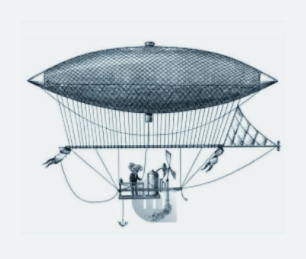As the child grows, questions from those around them about sleep are abandoned in favor of those about obedience.
A new societal injunction that presents itself to parents: the need to know how to make a little one obey
An individual is a continuum: there is a continuity between the values he integrates as a child and those he deploys as an adult.
Yet there is an extreme oddity in the expectations of a human being based on his or her age.
A child should obey because he is dominated by adults who know.
This cult of obedience is extremely widespread and very little questioned.
To achieve this conditioning to obedience, many methods can be used: shouting, threats, attempts to inspire fear, guilt, withdrawal of attention, criticism, even humiliation and physical violence, etc.
Having been conditioned throughout his childhood, it is a safe bet that as an adult he will become the type of person who obeys authority figures to the letter and follows orders without thinking. And one would logically expect that this obedience would continue to be valued socially as an adult.
Well no, that is not the case... On the contrary, we will regret the lack of free will and measure the damage of obedience by deploring the results of the Milgram experiment for example. We will adulate heroes who demonstrate extraordinary courage, admire those who resist.
So there is a huge gap between social expectations of children and those of adults. Expectations that are completely contradictory.
It is also not uncommon for parents who advocate infantile obedience to later regret the lack of closeness, dialogue and complicity with their children who have become adults.
How can social rules be integrated without resorting to obedience?
The need to " make society " does not allow us to do what we want when we want. This is a reality that is imposed on children as well as adults.
We are real role models for children.
Most of the rules of life in society are integrated by the little ones by living experiences with the parents and by imitating them .
This is why it is totally counterproductive to ask something of a child and do the opposite yourself. Children are our mirrors in this regard.
The presence and involvement of families are therefore the real levers for acquiring life in society. This is why proximal parenting , which involves putting oneself in the child's shoes to better understand them, allows the child to assimilate social codes with gentleness, respect, empathy and compassion.
Is benevolent/positive/proximal/empathetic parenting a form of laxity?
The term “ benevolent ” is extremely catch-all and overused. So much so that articles are flourishing today with the theme
“ Are we too kind to our children? ”
Would being a little more malicious be better? ...
We end up asking ourselves questions that make no sense. This is why the term empathy seems more explicit to us . Laxity means not intervening to guide the child towards the correct understanding of his attitudes.
Conditioning through fear disempowers, cuts off reflection and gives parents the illusion of saving time. With the demand for obedience, we do not promote the development of autonomy and the construction of critical thinking . In this, we postulate that obedience is a form of laxity, of laziness.
Unlike obedience, empathy helps develop the child's thinking, free will, respect for others, and the construction of a decision.
Empathy involves valuing the child's intentions, their actions, offering them choices, engaging in dialogue, explaining the meaning of the rules, the consequences of their actions, etc.
Taking an interest in the child, in their abilities, their skills, asking questions about the best way to provide them with a framework, thinking about what is important and what is not: this is anything but laxity. It requires time, involvement, reflection. It is choosing to create a bond of cooperation, a bond of trust, over the long term, with your child .
It is a safe bet that in the near future, the perception of children's rights will change considerably.
We would not dare to ask our spouse, our friends, our colleagues to obey without thinking. And yet, this is socially acceptable with regard to a child.
As there has been an awareness of the violence and discrimination suffered by women, there will be an awakening of consciousness regarding the rights of children who are human beings in their own right and who deserve to be given the best.




